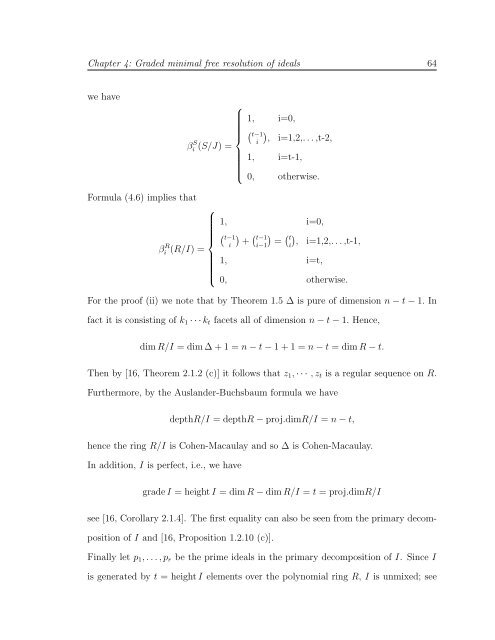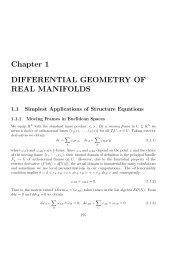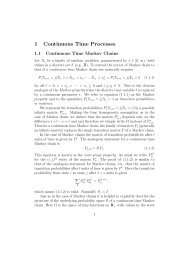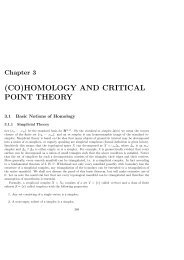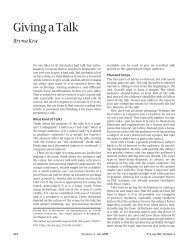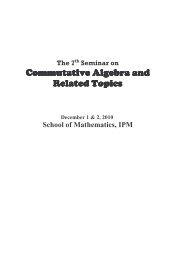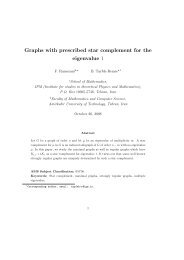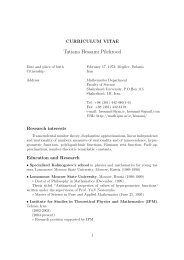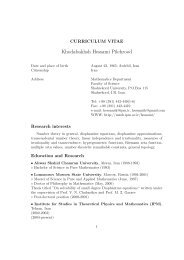Betti numbers of modules over Noetherian rings with ... - IPM
Betti numbers of modules over Noetherian rings with ... - IPM
Betti numbers of modules over Noetherian rings with ... - IPM
You also want an ePaper? Increase the reach of your titles
YUMPU automatically turns print PDFs into web optimized ePapers that Google loves.
Chapter 4: Graded minimal free resolution <strong>of</strong> ideals 64<br />
we have<br />
Formula (4.6) implies that<br />
β R i (R/I) =<br />
β S i (S/J) =<br />
⎧<br />
⎪⎨<br />
⎪⎩<br />
⎧<br />
⎪⎨<br />
⎪⎩<br />
1, i=0,<br />
<br />
, i=1,2,. . . ,t-2,<br />
t−1<br />
i<br />
1, i=t-1,<br />
0, otherwise.<br />
1, i=0,<br />
t−1 t−1 t<br />
+ = , i i−1 i=1,2,. . . ,t-1,<br />
1, i=t,<br />
0, otherwise.<br />
For the pro<strong>of</strong> (ii) we note that by Theorem 1.5 ∆ is pure <strong>of</strong> dimension n − t − 1. In<br />
fact it is consisting <strong>of</strong> k1 · · · kt facets all <strong>of</strong> dimension n − t − 1. Hence,<br />
dim R/I = dim ∆ + 1 = n − t − 1 + 1 = n − t = dim R − t.<br />
Then by [16, Theorem 2.1.2 (c)] it follows that z1, · · · , zt is a regular sequence on R.<br />
Furthermore, by the Auslander-Buchsbaum formula we have<br />
depthR/I = depthR − proj.dimR/I = n − t,<br />
hence the ring R/I is Cohen-Macaulay and so ∆ is Cohen-Macaulay.<br />
In addition, I is perfect, i.e., we have<br />
grade I = height I = dim R − dim R/I = t = proj.dimR/I<br />
see [16, Corollary 2.1.4]. The first equality can also be seen from the primary decom-<br />
position <strong>of</strong> I and [16, Proposition 1.2.10 (c)].<br />
Finally let p1, . . . , pr be the prime ideals in the primary decomposition <strong>of</strong> I. Since I<br />
is generated by t = height I elements <strong>over</strong> the polynomial ring R, I is unmixed; see<br />
i


